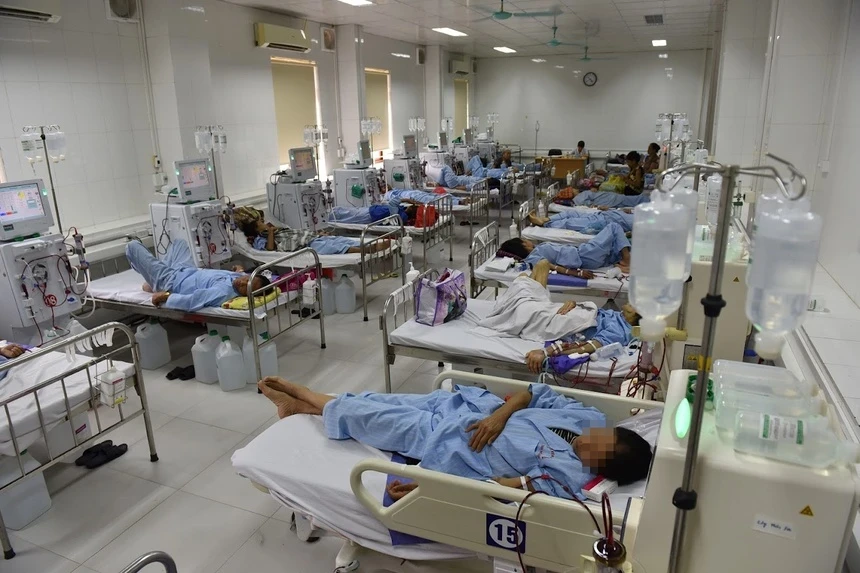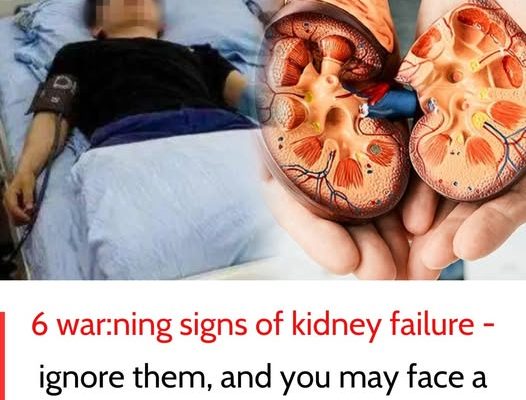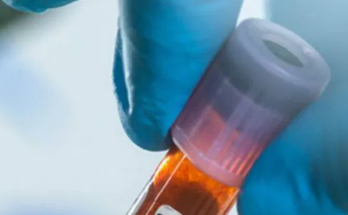Warning signs of kidney failure in young people to pay attention to
If your kidneys can’t function properly, toxins can overwhelm your body, leading to kidney failure.
The kidneys are important organs that filter blood and remove toxins from the body. These toxins travel to the bladder and are eliminated when you urinate. If the kidneys cannot function properly, toxins can overwhelm your body, leading to kidney failure.
Kidney failure means that one or both of your kidneys are no longer working well on their own. Kidney failure is sometimes temporary, developing quickly (acute). But it can also be chronic, gradually getting worse.
Kidney failure is the most severe stage of kidney disease and can be fatal if left untreated.
Stages of progression to kidney failure
According to the Cleveland Clinic, kidney disease stages develop based on each person’s estimated glomerular filtration rate (eGFR). The eGFR is a value that indicates how well the kidneys filter waste from the blood and helps determine the extent of kidney damage that is present.
A normal eGFR is around 100. An eGFR as low as 0 means kidney function is no longer present. Stages of kidney damage include:
- Stage I – eGFR between 90-100: At this stage, your kidneys are slightly damaged but still function normally.
- Stage II – eGFR between 60-89: The kidneys are more damaged than in stage I, but still function well.
- Stage III – eGFR between 30-59: You may have mild or severe loss of kidney function.
- Stage IV – eGFR between 15-29: You have severe loss of kidney function.
- Stage V – eGFR below 15: Your kidneys are about to fail or have completely failed.
First signs of kidney failure
Many people have few or no symptoms in the early stages of kidney disease. However, chronic kidney disease can still cause damage even if you feel healthy.
Symptoms of kidney failure vary from person to person. If your kidneys aren’t working properly, you may notice one or more of the following signs:
- Extremely tired.
- Nausea and vomiting.
- Confusion or difficulty concentrating.
- Swelling (edema), especially around the hands, ankles, or face.
- Urinate more often.
- Cramps (muscle spasms).
- Dry or itchy skin.
- Loss of appetite or a metallic taste in food may occur.

Causes of kidney failure
According to Healthline, kidney failure can have many different causes. According to the National Kidney Foundation, the two most common diseases that cause kidney failure are high blood pressure and diabetes.
People at highest risk often have one or more of the following:
Loss of blood flow to the kidneys
A sudden loss of blood flow to the kidneys can lead to kidney failure. Some causes include: Heart attack, heart disease, liver scarring or failure, dehydration, severe burns, allergic reactions, severe infections (sepsis). High blood pressure and anti-inflammatory medications can also restrict blood flow.
Urinary problems
When your body can’t get rid of urine, toxins build up and overwork your kidneys. Certain cancers can block the way urine flows, such as prostate, colon, cervix, and bladder.
Other conditions that can interfere with urination and lead to kidney failure include: kidney stones, enlarged prostate, blood clots in the urinary tract, damage to the nerves that control the bladder.
In addition, some other factors that can lead to kidney failure include:
- Blood clots in or around the kidneys.
- Heavy metal poisoning.
- Use of drugs and alcohol.
- Vasculitis.
- Lupus erythematosus – an autoimmune disease that can cause inflammation of many organs in the body.
- Glomerulonephritis, inflammation of the small blood vessels of the kidneys.
- Multiple myeloma, a cancer of plasma cells in the bone marrow.
- Scleroderma – an autoimmune condition that affects the skin.
- Thrombotic thrombocytopenic purpura – a disorder that causes blood clots in small vessels.
- Chemotherapy drugs treat cancer and some autoimmune diseases.
- Some antibiotics.
- Uncontrolled diabetes.


